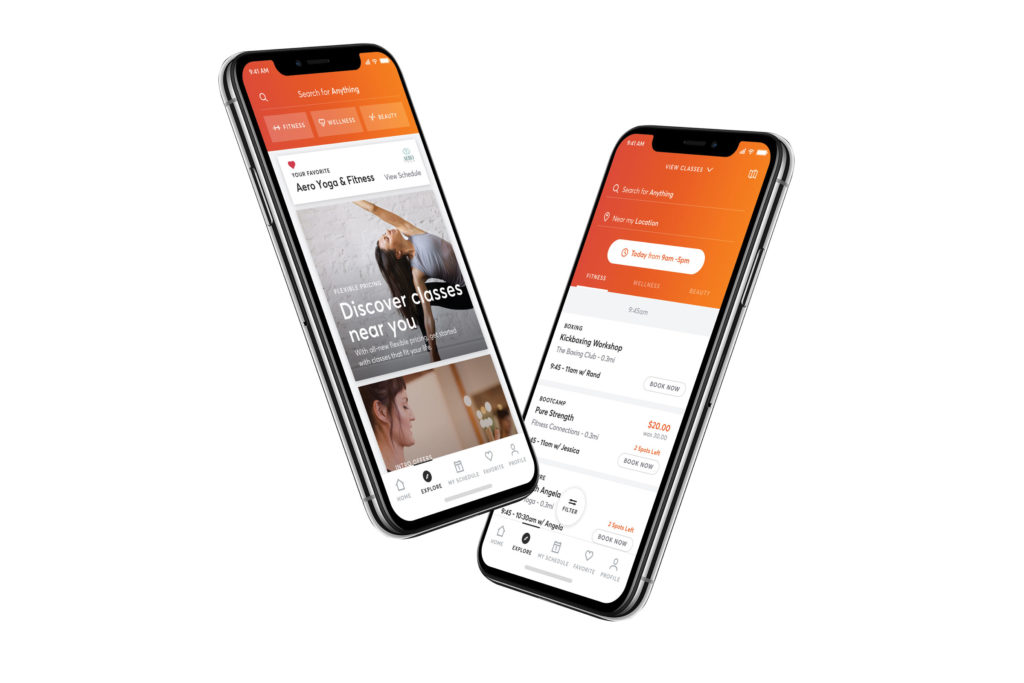Medical Device: The Heart-Brain Stroke Connection

Following on the heels of an “unprecedented” study, the Gore REDUCE Clinical Study concluded that closure of patent foramen ovale (PFO) could prevent recurrent ischemic strokes. W. L. Gore & Associates, Inc. (Gore) then received FDA approval for an expanded indication for its GORE CARDIOFORM Septal Occluder, already approved for closure of atrial septal defects (ASDs) up to 17 mm, and is now also approved for the closure of PFO to reduce the risk of recurrent ischemic stroke in certain patients.
“This marks a significant milestone in the long journey to confirm the heart-brain relationship connecting PFO and stroke,” John Rhodes, MD, Medical University of South Carolina, and U.S. Interventional Cardiologist National Principal Investigator for the REDUCE Study, said in a statement. “The soft and conformable design of Gore’s device is ideal for providing long-term repair of PFOs of any shunt size.” In terms of serious adverse events, the PFO closure showed no significant difference in risk between closure and medical therapy alone. The clear reduction in recurrent ischemic stroke provided by PFO closure, Rhodes says, far outweighs the low risk.
“The groundbreaking results of the REDUCE Study changed the neurology community’s perspective on PFO closure when they were announced,” said Scott Kasner, MD, Neurologist in the Perelman School of Medicine at the University of Pennsylvania, and U.S. Neurology National Principal Investigator for the REDUCE Study. “It was the first U.S. Investigational Device Exemption (IDE) study to show a statistically significant reduction in stroke recurrence in the primary intent-to-treat analysis.”
Brand Beat: Becoming a Doc’s Trusted Partner
Bristol-Myers Squibb (BMS) and Biogen are doctors’ most “trusted partners,” according to the DRG Digital | Manhattan Research group’s latest Taking the Pulse U.S. study—the longest-running U.S. study of online physician attitudes and multichannel behavior. Of the 2,724 U.S. physicians surveyed, 91% who had recently interacted online with BMS rated it a trusted partner, while 90% said the same of Biogen.
Doctors were also asked to rank 30 major and mid-tier pharma companies by 1) quality of digital content, 2) empathy for healthcare professionals, and 3) putting patients first. But the study also revealed a simple way to improve physician trust: Provide useful content and services more frequently online.
“Our previous studies have clearly shown that physicians want highly credible scientific content and non-promotional value-adds from pharma companies,” says Heather Figlar, Director of U.S. Physician Research at DRG Digital. The best way to gain physician trust, Figlar notes, is to distribute high-science content across multiple channels, consistently and frequently. “U.S. Doctors spend more than three hours daily on their EHRs, and more than 90 minutes seeking information from external sources,” she adds. “Pharma companies that effectively execute strong content strategies will stand out as trusted sources of information for these often-harried professionals.”
TeleMed Texts: New MINDBODY App Launches
 A leading technology platform for the fitness, wellness, and beauty services industries, MINDBODY, announced the release of an all new version of the MINDBODY App for both Android and iOS. The new app also makes it easier for people to explore and book a wide variety of classes and appointments offered at the time, place, and price that best fit their lifestyle.
A leading technology platform for the fitness, wellness, and beauty services industries, MINDBODY, announced the release of an all new version of the MINDBODY App for both Android and iOS. The new app also makes it easier for people to explore and book a wide variety of classes and appointments offered at the time, place, and price that best fit their lifestyle.
While the first MINDBODY app originally launched in 2015, by 2017 more than 40 million consumers had booked 600 million classes and appointment sessions through the MINDBODY platform, spending nearly $10 billion on their personal wellness. More than 130 million of these wellness sessions were booked by consumers via MINDBODY’s mobile apps, reflecting a 63% increase year over year in direct consumer engagement.
“The growth of our marketplace demonstrates how hungry people are for an easier way to make wellness a part of their daily lives,” Rick Stollmeyer, MINDBODY CEO and Co-founder, said in a statement. “We want to help them by minimizing the barriers they encounter, whether that’s time, place, or price. The new MINDBODY App is just the beginning.” And it’s free to download via the App Store and Google Play.
Doctor Docs: Physician Gender Equity—It’s Time
The American College of Physicians (ACP) is urging physician employers to commit to gender pay equity, leadership development, career opportunities, and parental and family leave policies, Reuters Health reports. The group also recommends that hospitals, clinics, and other physician employers avoid creating financial or career penalties for those working less than full time.
“For many reasons, including the pay gap and gender bias and discrimination, women physicians face a higher rate of burnout than men—some studies show that rate to be as high as 71% for women physicians,” Dr. Susan Thompson Hingle, Chair of the ACP Board of Regents and a professor at the Southern Illinois University School of Medicine, told Reuters Health. And while “burnout” is not strictly linked to the pay gap, it contributes to it and the consequences are bad for everyone. Dr. Hingle explains, “Burned out physicians not only leave medicine early, thus worsening the physician shortage, but they also provide lower quality care, have higher rates of medical errors, and lower patient satisfaction scores.”
Mandating parental leave is a good place to begin addressing gender equity issues. “Promotion and academic rank are contributors to salary and to respect,” Dr. Hingle adds. “Because of many factors, including societal expectations, women progress more slowly through the academic ranks, thus contributing to the gender disparities in salary and in leadership.”
Discoveries/Innovations: Two U.S. Biotechs Unlocking Genomic Data
OnRamp Bioinformatics, Inc., a genomics company providing a premier scientist-focused data analysis platform, and Advaita BioInformatics, a leader in personalized medicine and interpretation of Next-Gen Sequencing data, are partnering to provide a comprehensive research experience from sample to interpretation with a seamless hand-off between systems.
OnRamp.Bio’s flagship product, ROSALIND, enables researchers, drug developers, and bench scientists to analyze raw genomics data by providing a transformative experience through point-and-click experiment set up, interactive data visualization, and interpretation. Advaita’s iPathwayGuide platform provides a deep view of multi-omics data, offering an integrated platform including advanced analytical methods, which can quickly provide life scientists deep insights from genetic data anywhere across the globe. Advaita’s proprietary algorithm, Impact Analysis, considers all gene interactions on each pathway, providing mechanistic insights that other tools never find.
“This is a critical time in the evolution of the genomics market, as life scientists are looking to shift core processes to biological answers that influence treatments used in personalized medicine,” said Tim Wesselman, OnRamp.Bio’s CEO, in a statement. “Market reports are now estimating a more rapid growth trajectory for genomic analysis, with RNA analysis alone becoming a $3.62B market by 2021.”
FDA Update
Drug Approvals
Novartis received approval for Kymriah, for patients with relapsed or refractory (r/r) large B-cell lymphoma—the second U.S. approval for the CAR-T therapy. The drug is now cleared for the treatment of adults with diffuse large B-cell lymphoma (DLBCL), high grade B-cell lymphoma, and DLCBL arising from follicular lymphoma, after two or more lines of systemic therapy.
Portola Pharmaceuticals’ Andexxa (andexanet alfa) has been approved as the first antidote indicated for patients treated with Bayer and J&J’s Xarelto (rivaroxaban) and Pfizer’s Eliquis (apixaban) when reversal of anticoagulation is needed due to life-threatening or uncontrolled bleeding. Andexxa will launch in June, with a broader market roll-out in 2019 after clearance of its second-generation manufacturing process.
New Drug Application
The FDA extended a new drug application for Takeda’s and Lundbeck’s Trintellix (vortioxetine). The clinical trials section of the U.S. label now includes data from the largest replicated clinical studies on an important aspect of cognitive function in acute major depressive disorder (MDD, depression). Trintellix is shown to have a positive effect on processing speed, an important aspect of cognitive function observed in some patients with MDD.
Med Device Approvals
Medtronic’s DBS (Deep Brain Stimulation) System received approval for the treatment of epilepsy. The device works by delivering controlled electronic pulses to the location in the brain involved in seizures. The system is used in conjunction with anti-epileptic drugs and helps reduce the frequency of seizure in epilepsy patients who have frequent, disabling, partial-onset seizures and who have not responded well to anti-epileptic drugs.






